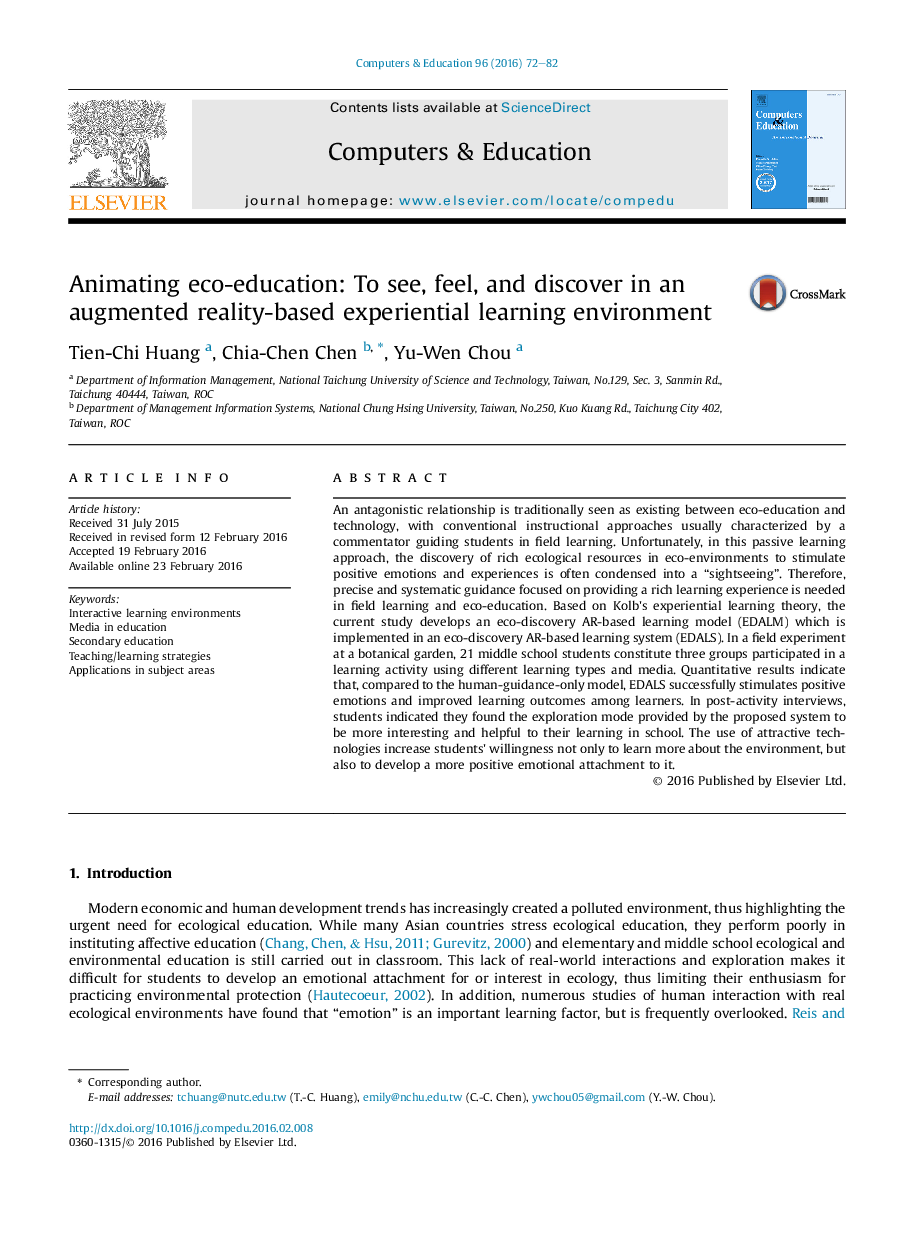| Article ID | Journal | Published Year | Pages | File Type |
|---|---|---|---|---|
| 348188 | Computers & Education | 2016 | 11 Pages |
•Design of an eco-discovery AR-based learning model and system (EDALS) for eco-education.•Students used EDALS to connect virtual and real world to enrich exploring experience.•Students performed best when they are learning with EDALS integrated in commentator approach.•EDALS integrated with eco-environment stimulates students' positive emotions and engagement.
An antagonistic relationship is traditionally seen as existing between eco-education and technology, with conventional instructional approaches usually characterized by a commentator guiding students in field learning. Unfortunately, in this passive learning approach, the discovery of rich ecological resources in eco-environments to stimulate positive emotions and experiences is often condensed into a “sightseeing”. Therefore, precise and systematic guidance focused on providing a rich learning experience is needed in field learning and eco-education. Based on Kolb's experiential learning theory, the current study develops an eco-discovery AR-based learning model (EDALM) which is implemented in an eco-discovery AR-based learning system (EDALS). In a field experiment at a botanical garden, 21 middle school students constitute three groups participated in a learning activity using different learning types and media. Quantitative results indicate that, compared to the human-guidance-only model, EDALS successfully stimulates positive emotions and improved learning outcomes among learners. In post-activity interviews, students indicated they found the exploration mode provided by the proposed system to be more interesting and helpful to their learning in school. The use of attractive technologies increase students' willingness not only to learn more about the environment, but also to develop a more positive emotional attachment to it.
